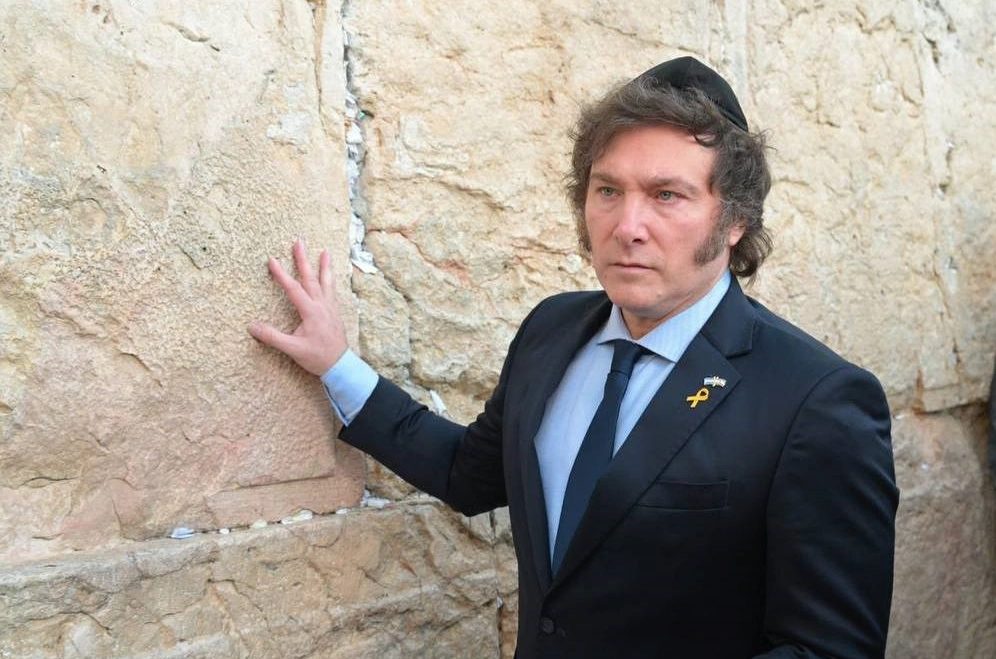At that time, businessmen were considered heroes by society, and a promising future was envisioned. Soon after, the crisis hit the country in question profoundly. The fall in gross domestic product (GDP) was one of the most pronounced, while the vast sectors of the population lost their jobs and savings. Many fell into poverty. The crisis that affected the country in question induced a strong devaluation, which further deepened the recession that was being experienced while inflation grew. The financial sector was heavily compromised. The seriousness of the situation forced the government to turn to the International Monetary Fund (IMF).
In the country concerned, the reputation of the political class was strongly affected. The traditional political parties, which until then had dominated the political scene, were strongly discredited. Allegations of corruption abounded in the headlines of the mainstream media, the business dealings of politicians and businessmen, or businessmen turned into politicians, were aired, and information about their accounts in the main tax havens came to light.
The country concerned, fortunately, was blessed with natural resources. It produced food and energy at competitive prices. The latter attracted investments in cryptocurrency mining, an electro-intensive activity. The crisis imposed a greater exploitation of natural resources, which for the leadership represented the fastest alternative to obtain foreign currency and circumvent the lack of funds shown by the situation. New debt was often subscribed in order to boost the new sector; a never-ending story.
As a result of the devaluation, the external position of the country in question improved rapidly. Fortunately, but not by much. The economic improvement was uneven, and the decline in the quality of life continued to hurt many families.
The country concerned is considered “small”: such is the qualification given by international economics manuals.This characteristic implies the impossibility of influencing the dynamics of international markets, let us assume energy or food. The same manual proposes global markets operating in a competitive framework. Competitive advantages, according to David Ricardo, dynamize trade and at the same time guarantee the welfare of peoples. This is not the place to analyze the validity of such a theory, although it would be useful to look at more recent visions of international economics in order to understand, for example, the export success of Japan, South Korea or China. Those that advanced did so by recreating new skills, generating dynamic advantages in which the State plays a predominant role, either by regulating or promoting the “going global” of their companies. Let us think here of the theoretical contributions of Paul Krugman, or the empirical contributions of Alice Amsden, Ha-Joon Chang or Justin Lin.
So, let us leave the academic debate behind and change the angle of analysis. If in the 1990s globalization blinded policymakers to the revealed truth behind the “Asian miracle”, twenty years later the rise of China would show its full validity. As we enter the 21st century, however, geopolitics will become the dominant vision of the global economy. New approaches challenge trade and investment. Industrialization policies are no longer questioned, even the Fund itself promotes them. It also accepts the desirability of introducing macro-prudential measures to avoid the excesses often caused by financial globalization, a watered-down version of the capital controls in force in the post-war period.
It is a time when paths fork, and alternatives are discovered. Stories teach us lessons. Crisis questions imply the evolution of critical moments, breaking points, reflect a road full of risks, but also of opportunities. And, like driving on a road, we observe multiple signs. Some exits may lead us to stagnation, to end up implementing a program of “perpetual adjustment” for the benefit of the minority. But if we choose wisely, the road can lead us to a fairer, more inclusive future. When the bifurcation presents itself, the usual political restrictions are momentarily relaxed. We are facing a critical, foundational moment that provides the opportunity for a profound change in social organization and environmental protection.
Going through a critical moment, nevertheless, does not necessarily lead to transformative change. Some junctures reinforce the pre-existing model. Such is the case of Argentina, the land of great opportunities often wasted. The cultural beacon of Latin America, today governed by the extreme right that disguises itself as liberal but acts in a non-republican manner. From crisis to crisis since the 1970s, Argentine society has not been able to overcome the import substitution industrialization model (ISI), despite the limits it showed. With the financial opening, any attempt at growth with inclusion was frustrated. Any policy that attempts to minimize the volatility that accompanies the free mobility of capital is widely resisted. Any tool that tends to control cross-border financial movements is strongly questioned. For the elites, it all sounds like Keynesianism.
The country is also characterized by the prevalence of an extractive consensus, sponsored by neoliberal or neo-developmentalist governments, today implemented by the extreme right-wing government and provincial leaders. It is only possible to get out of the crisis in question based on resources, one of the central points of the great “May Agreement” proposed by Javier Milei. This implies, among other things, not wasting the opportunity offered by the dead cow. Taking advantage of several tax advantages, as well as large subsidies, in Zapala, a town in the province of Neuquén, electricity is extremely cheap. At least for those entrepreneurs dedicated to cryptocurrency mining, an activity they describe as an engine of development – obviously with little concern for its effects on the environment.
In order to fix the country’s situation definitively, there is no other option than adjustment and environmental degradation. Although austerity punishes many and benefits a few. Let’s think about which sectors have gained and lost after 100 days of La Libertad Avanza in power. Salaries are pulverized, pensions are liquefied, layoffs increase, public agencies are closed. It is proposed to eliminate the exceptions to the glaciers law, to advance with extractivism at all costs. In the meantime, prepayments increase, public services become unaffordable, the increase in fuels provides extraordinary profits to oil companies, the financial sector flourishes while lithium reserves are given away to the highest bidder. And so on. Freedom for capital. Freedom to pollute the environment. For the elites, the game is all or nothing. In the name of the market, the costs generated by the measures are cruelly justified. The majorities suffer while the red circle celebrates.
Luckily, examples of deep economic crises that turned into opportunities abound. Such is the case of Iceland. A small country, both in terms of population and economy, certainly much less relevant than Argentina in the international context.
Noted as a model for its level of financial integration and economic openness, this country was heavily exposed by the 2008 global financial crisis (GFC). The crisis was total. In addition to the abrupt drop in the level of activity, the financial system collapsed: the three main banks declared bankruptcy. At the time of the GFC, the combined assets of these banks represented 14 times more than Iceland’s GDP. Investors smelled blood, particularly those based in Great Britain – remember that these financial institutions raised a large part of their deposits in the London financial centre. But the authorities reached a historic agreement with the Fund, which recognized the need to reintroduce controls on cross-border capital.
In the Stand-By Arrangement (SBA), signed at the end of 2008, Iceland agreed with the Fund to introduce capital control measures that were estimated to last for six months. But it will be in 2017 when these measures begin to be reversed, albeit partially: the control lasts until 2021. At the same time, the government introduced a series of regulations aimed at preserving the stability of the domestic financial system. This allowed the island’s authorities to stabilize the exchange rate and reschedule its debt while diversifying the economy.
The political turnover, on the other hand, allowed Katrín Jakobsdóttir to accede in 2017 to power. From that moment on, the prime minister, part of the left-green coalition, began to implement a series of transformative policy measures. But it was the pandemic first, and the invasion of Ukraine later, that ended up shaping a new vision. As new critical events erupted, and the geopolitical crisis worsened, Jakobsdóttir decided to ban cryptocurrency mining, an activity that consumed more electricity than the entire population of the island. At the same time, the government was introducing an agricultural program aimed at strengthening both food and energy security. Such a decision is not isolated. This type of policy is central in many Asian countries, and is vital for China and India. After the invasion of Crimea in 2014, the EU also began to recognize the need for such measures.Russia’s escalation strengthened this policy.
So far, the lessons of the country in question are a story open to different endings. One of them is dystopian: it privileges the profitability of a few at the expense of the sacrifice of the majority as much as the denigration of the environment. The poverty that corrodes the social fabric of an Argentina that knew how to enlighten the region culturally. A biodiversity crisis that is hidden as much as climate change is denied. Another is promising: it highlights the search for an inclusive and sustainable future, where ethics underpins the design of public policies, the planning of measures to avoid the famines of tomorrow or the guarantee of home heating. It is beyond the scope of this article to highlight what the future holds; the only thing that can be asserted is the impossibility of returning to the past. Sometimes freedom is a step backwards.
*Translated from Spanish by Micaela Machado Rodrigues












